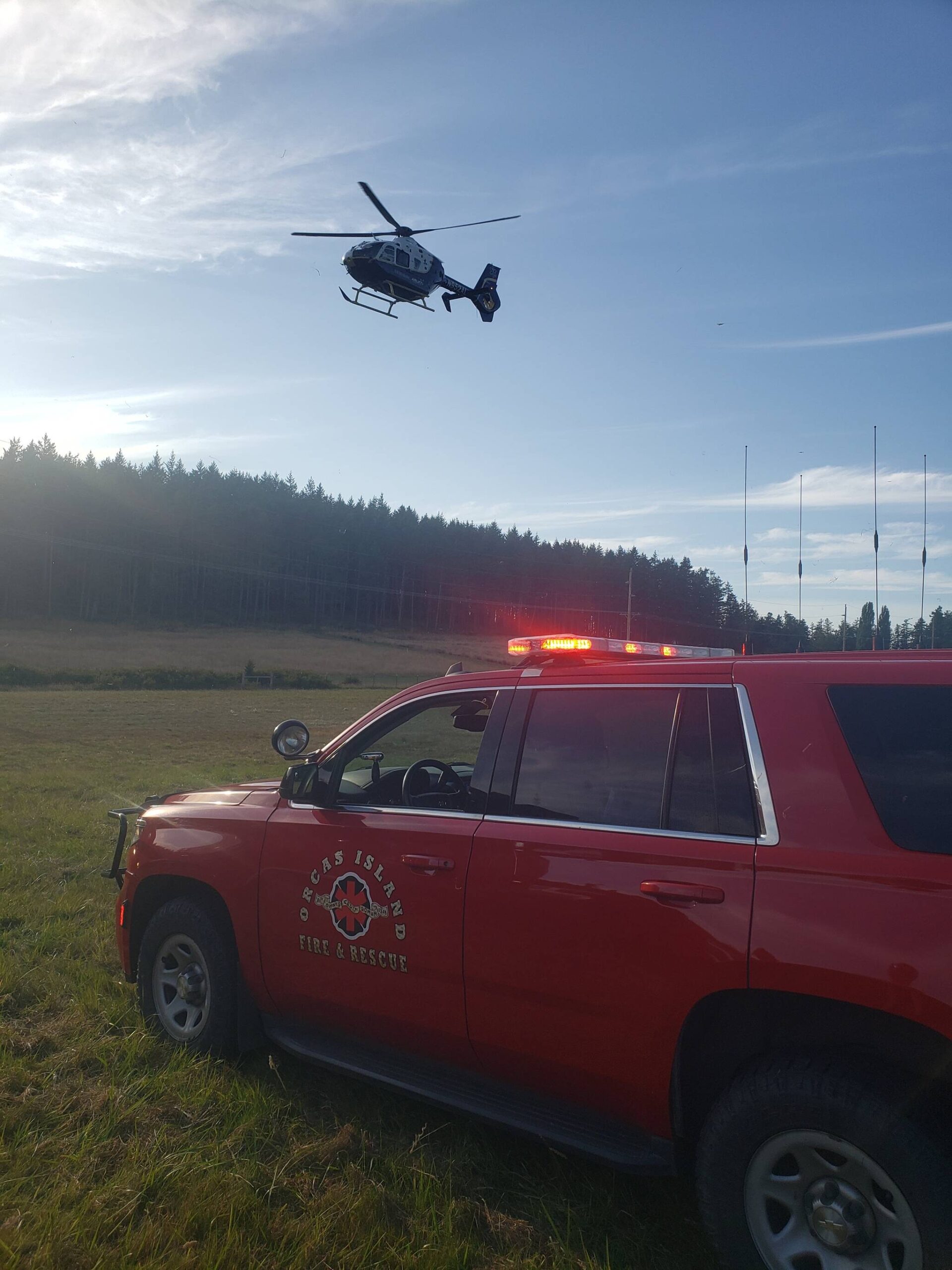Submitted by Orcas Fire and Rescue
An airplane traveling a few miles away from Orcas Airport made an emergency landing Wednesday evening. The landing resulted in the airplane flipping over as it hit a fence in a field. OIFR first responders were en route within 15 seconds of being dispatched, with 11 OIFR members responding to the incident.
Through a combination of skill and teamwork, one patient was flown to St. Joseph’s in Bellingham for further care using a nearby site deemed suitable as a landing zone. Crews were on the scene within minutes of the 911 call and remained until incident command determined the situation was stable for handing over to law enforcement.
The call came in just as the on-duty crew at the Eastsound station had finished assessing, treating and coordinating care for a walk-in patient. The duty crew, other staff, and volunteers across the island heard “stand by for page” from dispatch and were ready for the second call. Two calls active at the same time are common on Orcas Island, where we have approximately 1200 calls per year, with around 20% of them happening as concurrent calls. This is commonly referred to as a “double tap.”
To volunteer and career staff, it was clear from the dispatch details that this call warranted a significant response. Witnesses saw responders jump into action, coordinate, and move out within seconds.
First Responder Lieutenant Tony Simpson was one of the first on the scene.
“As an aviator for 35 years and a volunteer in this department,” he says, “it’s great to see how we respond quickly and in large numbers when this kind of thing happens.”
A plane crash is a time-critical event, both from a medical and a fire suppression perspective. While en route to the incident, fire department officers were coordinating resources to ensure that we would be able to adequately provide both emergency medical care (based on the significant mechanism of injury reported), as well as be prepared for the ignition of a wildland fire based on the likelihood of fuel spills in these events, combined with current dry environmental conditions.
Crews responded from Eastsound with an ambulance and two fire engines. Our backup paramedic, Chief vanSchaick, and additional crews responded with her Advance Life Support fly car and a fire engine from Deer Harbor. The West Sound fire station volunteers brought the Station 22 water tender to the scene in case there was a fire, and a large amount of water was needed. Volunteer Officer Lt. McCorison was first on scene, navigating the complex access through fences and gates into the field where the plane was located.
Due to the quick arrival of Lt. McCorison, incoming units were advised of the status of both the airplane (and its fluids) as well as the condition of its occupants. Volunteer EMTs arrived and worked with the Chief/Paramedic vanSchaick to provide immediate ALS-level patient care. A landing zone was identified and set up for rotor resources to land nearby. Patient care was transferred to ALNW for transport to an emergency department. Fortunately, this time there was no additional fire or hazardous material involvement, but OIFR had brought the resources to the scene necessary should any such situation have arisen.
OIFR thanks bystanders for their assistance at the scene and is grateful for our members who showed up and did their jobs with proficiency, competence, and, most of all, teamwork.





